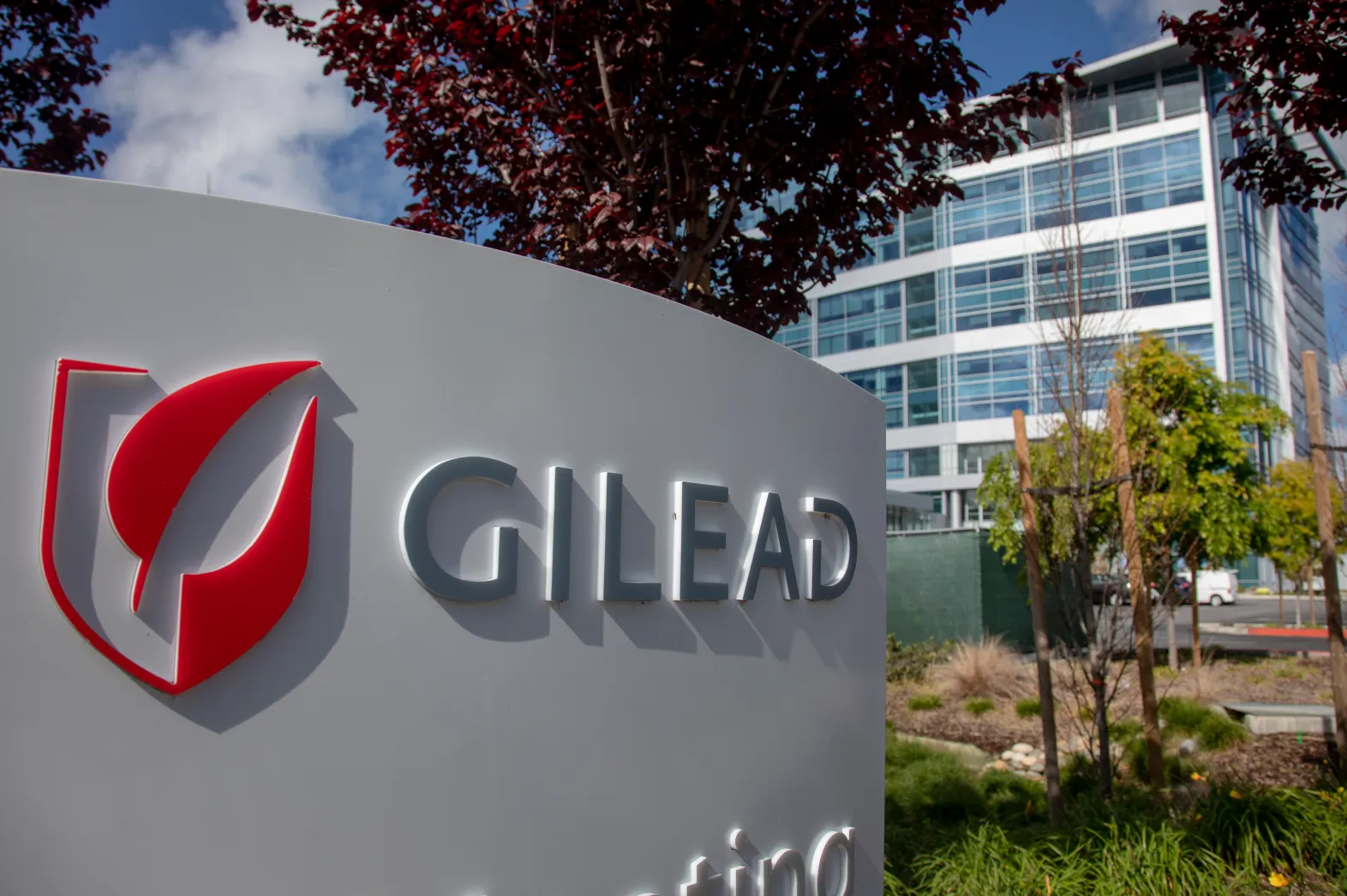Gilead Sciences announced Monday that it will acquire clinical-stage biotech CymaBay Therapeutics for $4.3 billion, gaining seladelpar, an investigational treatment for primary biliary cholangitis (PBC) that is currently under FDA priority review.
PBC is a progressive autoimmune disease that damages the bile ducts in the liver, causing bile acid buildup that can lead to irreversible scarring and liver failure. An estimated 130,000 Americans live with PBC, which mostly affects women over 40.
CymaBay’s seladelpar is an oral selective peroxisome proliferator-activated receptor delta (PPARδ) agonist that targets metabolic and inflammatory pathways involved in PBC. Data from late-stage studies demonstrate seladelpar’s potential as a best-in-class therapy for second-line PBC patients who don’t respond adequately to first-line treatment with ursodeoxycholic acid (UDCA).
The drug received breakthrough therapy and orphan drug designations from the FDA and EMA based on positive mid-stage results. In December 2022, CymaBay submitted a new drug application to the FDA, which was granted priority review last month. An approval decision is expected by August 14, 2024.
According to the phase 3 RESPONSE trial, seladelpar achieved significant improvements in reducing alkaline phosphatase levels and relieving itch symptoms compared to placebo. Nearly 62% of patients on seladelpar attained a biochemical response versus 20% on placebo.
Gilead aims to leverage its extensive experience in developing treatments for liver diseases like hepatitis C and nonalcoholic steatohepatitis (NASH) to advance seladelpar. The deal expands Gilead’s presence in the PBC space, complementing its existing medicine Ocaliva, which is approved as a second-line option.

Mark your calendars! Don’t miss Noble Capital Markets’ Emerging Growth Virtual Healthcare Equity Conference on April 17-18. This exclusive virtual event connects investors with 50 leading public biotech, healthcare services, and medical device companies. Presenting company slots are available…Learn More
“We are looking forward to advancing seladelpar by leveraging Gilead’s long-standing expertise in treating and curing liver diseases,” commented Gilead CEO Daniel O’Day. “Building on the strong R&D work by the CymaBay team, we have the potential to address a significant unmet need for people with PBC.”
Under the terms of the agreement, Gilead will commence a tender offer to acquire all outstanding CymaBay shares at $32.50 per share in cash, representing a 27% premium over the stock’s closing price on February 9. Following the tender offer, Gilead will mop up any untendered shares via a second-step merger at the same price.
The deal is anticipated to close in the first quarter of 2024, subject to customary closing conditions and regulatory clearances. Once the transaction is completed, CymaBay will become a wholly owned subsidiary of Gilead.
Gilead expects the buyout will boost its top-line revenue growth, while being neutral to earnings per share in 2025 before turning significantly accretive thereafter.
For CymaBay, the takeover marks the culmination of years of effort advancing seladelpar into late-stage testing and regulatory review. “Now that seladelpar has achieved priority review with the FDA, we are excited that Gilead can apply its expertise to bring seladelpar as quickly as possible to people with PBC,” noted CymaBay CEO Sujal Shah.
The profitable exit provides a major return for CymaBay investors, as the purchase price represents a substantial premium over the stock’s pre-announcement valuation. CymaBay shares have languished below $4 for much of the past two years.
Gilead has actively pursued M&A to augment its pipeline and product portfolio across therapeutic areas like oncology, inflammation, and antivirals. The company faces looming patent expiries on flagship HIV medicines. New growth drivers like seladelpar could help offset that impact.
PBC currently affects a relatively small patient population, but analysts project seladelpar could generate peak annual sales above $1 billion. Gilead likely sees potential to expand seladelpar’s utility to other cholestatic liver diseases.
Nonetheless, the deal does carry risks for Gilead. Seladelpar’s broad mechanism regulating gene expression raises safety concerns about potential side effects. Patients in late-stage testing experienced elevations in low-density lipoprotein cholesterol.
By acquiring CymaBay outright, Gilead shoulders all future R&D costs rather than opting for a partnership deal to share expenses. If seladelpar encounters any regulatory or commercial setbacks, Gilead lacks an immediate fallback option for its PBC program.
But with priority review underway and approval expected within six months, Gilead moved aggressively to lock up rights to a promising PBC candidate. Adding seladelpar provides another growth avenue beyond HIV and bolsters Gilead’s mission of delivering transformative medicines for underserved diseases.



